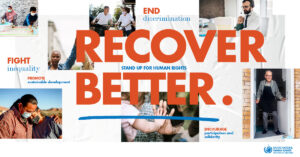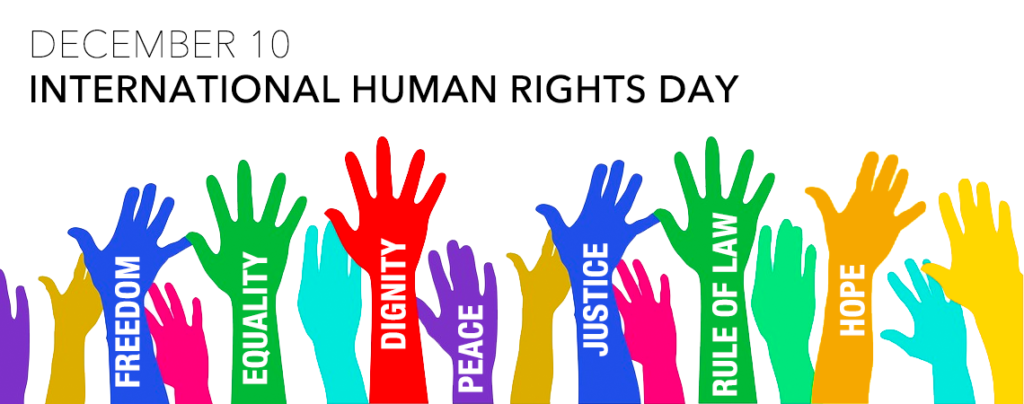“Stand Up for Human Rights”: Domestic abuse in older age as a human rights issue
 On the 10th December every year the world recognises Human Rights Day, a day designated by the United Nations to celebrate the 1948 Universal Declaration of Human Rights. The declaration sets out universal values and a common standard of achievement for all peoples and all nations. It establishes the equal dignity and worth of every person on the planet, regardless of race, colour, religion, sex, language, political or other opinion, national or social origin, property, birth or other status.
On the 10th December every year the world recognises Human Rights Day, a day designated by the United Nations to celebrate the 1948 Universal Declaration of Human Rights. The declaration sets out universal values and a common standard of achievement for all peoples and all nations. It establishes the equal dignity and worth of every person on the planet, regardless of race, colour, religion, sex, language, political or other opinion, national or social origin, property, birth or other status.
2020’s theme centres around the desire to build back a better world post Covid-19, where Human Rights are central to recovery efforts. Addressing all the failures exposed by the pandemic, which includes protection from domestic abuse.
Protection from domestic abuse is a fundamental human right we are all entitled to, including people in later life. Many of the problems facing older people are common to all of those experiencing domestic abuse. In fact, domestic abuse is an issue that lasts throughout the life course, and one that can have a profound impact on older people. However, older people’s experiences are often exacerbated by social, cultural and physical factors that require a tailored response.[1] There is a tendency to believe that domestic abuse does not occur amongst older people.[2] This assumption may encourage professionals to link injuries, confusion or depression to age related concerns rather than domestic abuse. In some cases, older people themselves are less likely to identify their situation as abuse, which acts as a barrier to the uptake of services and presents a challenge to outreach social workers. Therefore, it is crucial to raise awareness of the human rights of older people among the general public and to overcome practical, social and cultural barriers that may discourage older people from using their human rights.

Favouring a right-based approach helps to overcome the challenges for promoting older people’s human rights. Rights-based approaches are founded on the idea that individuals and groups are empowered to claim their rights as rights-holders, and states/governments have binding legal obligations as duty-bearers under International Human Rights Law to facilitate and promote human rights. In domestic abuse cases, this requires a clear set of duties placed on authorities to investigate, intervene and protect older people who are being abused or at risk of abuse. The abuse may be physical, psychological, emotional, sexual or financial, or may be the effects of neglect. Abuse often takes place in a person own home and perpetrated by intimate partners and/or family members who may be responsible for care. Therefore, it is important to provide a comprehensive range of tools with which to address breaches of older people’s fundamental rights to freedom, respect, equality, dignity and autonomy.
While ageing should not be seen as equal to frailty, sickness or incapability of contributing to society, the increased need to protect the human rights of older people cannot be denied. Human rights standards should provide vital protection for older people by helping change practice and procedure, culture and attitudes, and offering redress when breaches of human rights have taken place, but sadly abuse, neglect and undignified treatment are all too frequent occurrences. Everyone, including older person should be able to live life free from abuse.
Written by Naziye Dirikgil, a doctoral student volunteer for the Dewis Choice Project, Aberystwyth University.

